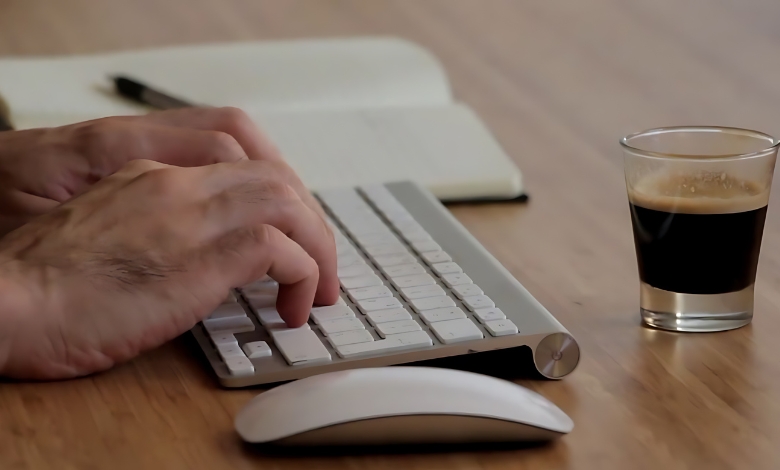Discover best practices and tips for creating effective thank you cards for business that leave a lasting impression.
Though emails and instant messages rule, the beauty and influence of a handwritten note are more important than ever.
Thank you cards for business are a great instrument for developing and preserving strong commercial ties.
They are more than just a token gesture; they are a purposeful activity meant to improve client retention and happiness as well as a monument to your thanks.
As time has gone on, I have come to see that writing a thank-you card may build trust and strengthen relationships.
It’s like giving the usually objective digital communication terrain some personal touch.
Including thanks can be a great starting point for those who are mostly concerned with improving employees productivity.
Let’s dive in.
Article Breakdown
Why Thank You Cards Matter in Business

Sending a thank you card for business is about creating closer relationships and leaving a lasting impact, not only about simple politeness. In a world where so many businesses depend mostly on digital communication, a handwritten message distinguishes you from your rivals.
It shows a very high degree of respect and care that will help to greatly strengthen brand loyalty and confidence.
I remember a time when a one-time client became a long-term partner thanks to a basic thank-you card, highlighting the great influence of these little acts.
This is not only anecdotal but also evidence of how well thank-you cards could build lifelong business partnerships.
Thank You Cards for Business: Best Practices
Making great business thank you cards calls for both professionalism and personalizing. Experience has taught me some excellent approaches here:
1. Keep It Personal Yet Professional
One easy yet powerful approach to establish a relationship with the recipient is by using their name.
Including particular specifics about your past contacts—such as referencing a shared project or a joyful event you two experienced—showcases your true appreciation for them as unique people.
This degree of personalizing not only promotes goodwill but also highlights the strength of your teamwork and helps you to pay attention to the subtleties of your professional contacts.
2. Timing Is Absolutely Vital
Maintaining relevancy and sincerity depends on you sending your thank-you card right after the purchase or event. Not only does a timely thank you show your gratitude but also supports your will to keep the relationship intact.
This approach emphasizes your respect for the recipient’s time and attention to detail, ensuring that your thanks will be felt when it matters most.
3. Handwritten Rather Than Printed
Although handwritten notes are usually considered more intimate and emotional, printed cards can be more sensible, particularly if you have to deliver several messages at once.
Think about the background of your relationship and the scope of your outreach to guide your choice of approach. A handwritten message might be more suitable for a close colleague or a major client, for example.
In contrast, a printed card will clearly express gratitude in more general professional environments.
4. Selecting the Correct Card Design
Your card’s design should complement the event for which you are expressing gratitude in addition to reflecting the character of your brand.
Whether it’s professional, quirky, or elegant, a carefully selected design will tell volumes about your attention to detail and quality commitment.
This small detail can make a big impact on the receiver since it shows your will to make them important.
5. Suitable Tone and Length
Ensuring your thanks comes across clearly depends on you writing your message to be succinct, honest, and respectful. Try to keep your note from becoming overly complicated with pointless details that can weaken your message. Rather, concentrate on important ideas that capture your gratitude.
Furthermore, make sure your message’s tone fits your brand voice—that is, official, friendly, or somewhere in between. Keeping up consistency in communication helps to project professionalism.
Tips for Different Types of Thank You Cards in Business
Your message effect will be much improved by customizing it to the occasion.
Here’s how to handle certain possibilities with thank you cards for business:
Notes of thanks following an interview – These notes remind you of your qualifications and support your interest in the post. This is a chance to show your proactive approach and make a memorable mark.
Customer appreciation cards – Express thanks for your business and loyalty of customers. A straightforward thank-you can inspire consumers to become brand champions and help your business to be seen positively.
After networking, thank you cards – Remind them of your meeting and show enthusiasm to work together to strengthen fresh contacts. This follow-up will set you apart from others they could have crossed.
Post-sale thank-you cards – Promote return business and strengthen a long-standing relationship. Acknowledging their purchase indicates your respect of their support and your will to ensure their happiness.
Custom Thank You Cards for Business: Incorporating Brand Elements
Your custom thank you cards for business must keep brand consistency.
You can accomplish this successfully as follows:
Using fonts, logos, and brand colors – guarantees that your card will be instantly identifiable as part of your business. Consistency communicates professionalism and can increase brand memory by itself.
Subtle branding versus overt marketing – Finding the proper mix is absolutely vital. Your card should mostly show thanks, not be used for promotion. Subtle branding supports your identity without taking front stage for the content.
Including a promotional discount or a business card – can be a kind deed that adds value and gently promotes your company. It calls for further participation and offers more points of contact for involvement.
Mistakes to Avoid When Sending Business Thank You Cards
I have made plenty of blunders, which have given me great insight about what not to do with thank you cards business wording:
Steer clear of too general statements– they can come across as fake and go against the intent of your gesture. Customize your remarks to convey real thanks and meticulous attention to detail.
Timing is crucial– don’t delay. One could consider a late thank-you note as an afterthought. Prompt cards honor your devotion to the connection and the recipient’s time.
Be careful with comedy– sometimes it’s difficult for writing to capture and could offend instead than amuse. Make sure the tone of your communication fits your professional relationship and the tastes of the receiver.
Steer clear of too aggressive marketing– remember, this is a thank-you rather than a sales pitch. Keep the emphasis on thankfulness and appreciation instead than advertising material.
Key Lessons
- One great approach to strengthen brand loyalty and confirm ties is business thank you cards.
- Following common advice and best practices will help you create significant relationships that set your company apart.
- Including these techniques into your correspondence will increase client happiness and strengthen brand reputation.
- Every thank-you note offers a chance to highlight the principles of your brand and deepen relationships.
- Thank you cards are a great addition to your business toolset whether you are honoring a great relationship, a new connection, or continuous support.



